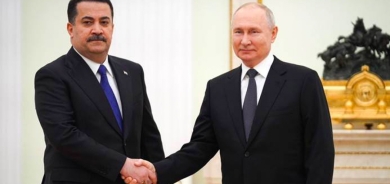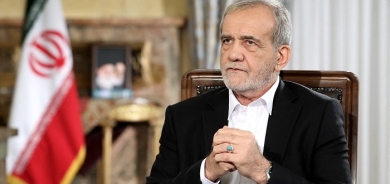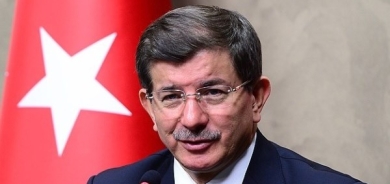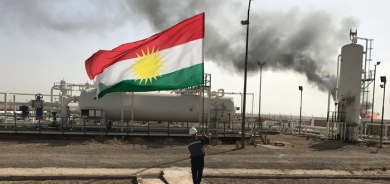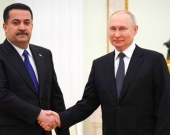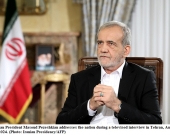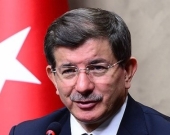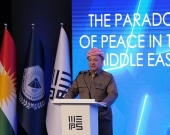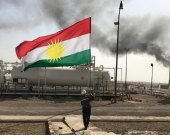Iraq Anbar rivalries risk benefitting al-Qaeda

Anbar’s tribal heads, who joined U.S. troops to battle Qaeda in 2006-2007, say they feel short-changed by the government after helping to restore security. Baghdad complains the tribes are meddling in local government affairs.
Anbar was the heartland of a Sunni Islamist insurgency after the 2003 U.S.-led invasion and fell into the grip of an Iraqi-based Qaeda wing before its tribal leaders formed the so-called Sahwa militias and turned against the militants in 2006.
Violence has subsided since those bloody days, but Iraqi security officials say local tribal squabbles have made the area vulnerable to a possible comeback by Qaeda affiliates.
“Al-Qaeda is seeking to exploit any state of division, any tensions or any relaxation in security there to achieve its goals," said a senior Iraqi military officer, who like other security officials interviewed, asked not to be named.
He voiced his concerns as U.S. troops prepare to leave Iraq by the end of the year under a security agreement. Iraqi officials say their forces can contain the weakened but stubborn insurgency, but attacks still happen daily.
Anbar, a vast desert province bordering Syria, Saudi Arabia and Jordan, is hard to control, with its hillsides dotted with hidden caves, few paved roads, and myriad dirt tracks that have been used for contraband smuggling for generations.
Last month’s killing of 22 Shiite Muslim pilgrims in predominately Sunni Anbar has also raised the specter of renewed sectarian tension, rekindling memories of Shiite-Sunni slaughter that killed thousands during 2006 and 2007.
In a sign of an upswing in violence, Iraqi security forces last week killed several suicide bombers and gunmen to rescue hostages seized by insurgents after they attacked a local government compound and a police station in Anbar.
Anbar society is dominated by tribal sheikhs whose financial and political clout helped them to eliminate Qaeda’s power in the region when they decided to turn against the insurgency.
The sheikhs say they feel excluded by a Shiite-led central government viewed as bent on asserting its own influence in a region where local leaders feel entitled to a bigger say, in recognition of their role in seeing off Qaeda.
“When al-Qaeda was at the height of its strength and ruled Anbar, we fought them,” said Ahmed Abu Risha, a prominent Sunni sheikh, told Reuters. “Now that security has been restored and stabilized, Baghdad comes to take over.”
The desert spreads across approximately two-thirds of Anbar and the remaining third is shared among many influential heads of tribes like Abu Risha.
He lives in a 60-acre (24-hectare) compound containing his al-Hashimiya fort, which is surrounded by blast walls. Police man checkpoints and guards watch the perimeter outside as gazelles, camels and thorough-bred horses wander in the grounds.
Tribal leaders also complain of sectarianism among local authorities and say their own security role is waning.
“Our role has become less effective and we are not controlling the situation in Anbar any more,” said Sheikh Nawaf Abduljabar, the head of al-Bajari tribe. “We feel alienated.”
Prime Minister Nuri al-Maliki’s government says it has met Anbar delegations, including tribal leaders, to discuss their problems. Maliki told Reuters this week the difficulty lay in tensions among competing tribes and said he had guarantees that sheikhs were working with the government on security.
But prominent sheikhs say key leaders have been ignored.
“We have 54 tribal sheikhs in the Anbar Tribal Council. No one was invited,” said Sheikh Hameed Turki al-Shook, the head of the council. “This is an insult; the government is dealing with the wrong people.”
Sectarian concerns still lurk near the surface for many in Iraq. Sunni tribes prevailed in power in Iraq before Saddam Hussein was toppled and the Shiite majority won ascendancy.
One senior defense official said tribes could be brought back in from the cold through a council with security officials and local authorities to appease their concerns about being left out of the political and administrative process in Anbar.
With Iraq’s major road links to Saudi Arabia, Syria and Jordan running through Anbar, any increase in attacks or resurgent Qaeda presence there would be bad for the country.
“Anbar is a very important area for al-Qaeda ... because it is a vast desert and requires enormous forces to secure,” another senior defense official said. “This is not possible, with what is currently available to the Iraqi army there.”

